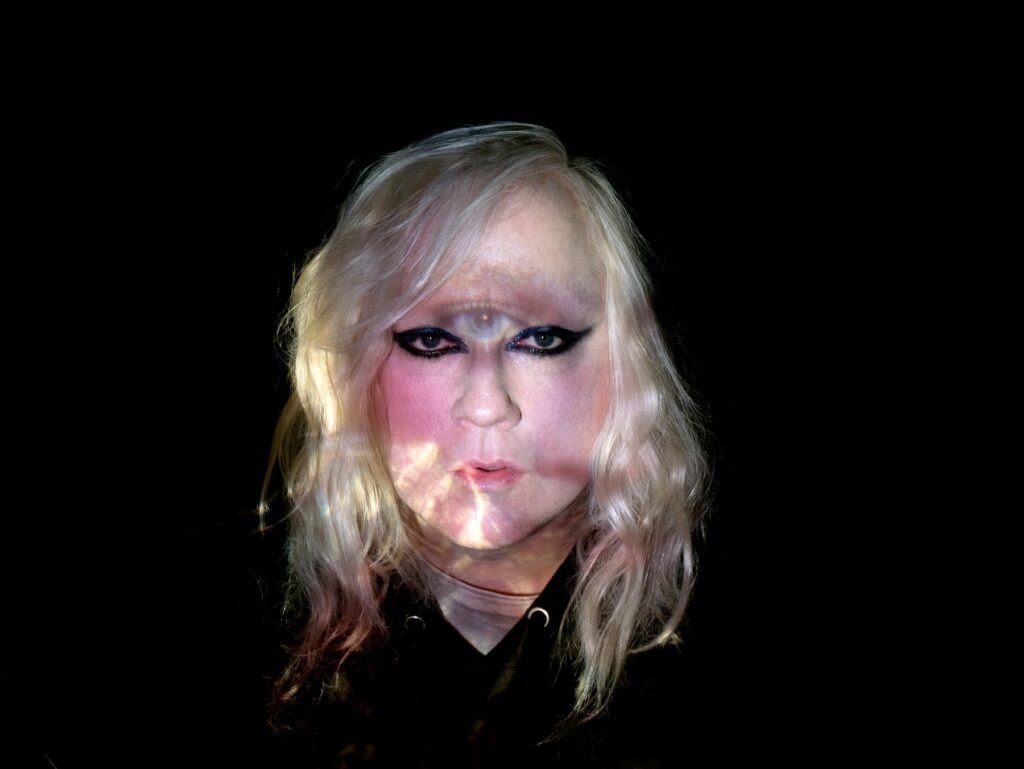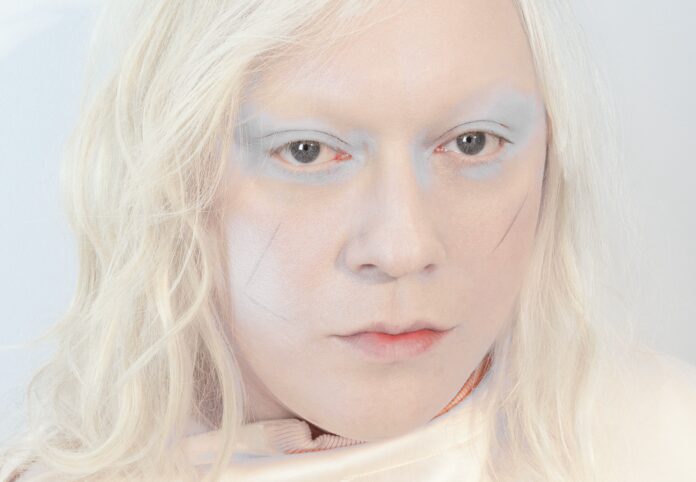ANOHNI is back with a new motto and mantra: “It’s Time to Feel What’s Really Happening.”
It’s the name of the protest singer-songwriter’s new tour—her first in eight years and the first with her art-pop ensemble, The Johnsons, in 14—hitting Oakland’s Fox Theater Tue/1.
In traditional ANOHNI fashion, this outing is no mere song and dance. It’s a rallying cry “to hold and express a sense of what’s really happening,” she tells 48 Hills.
“It’s what’s really happening on the face of this earth,” says ANOHNI. “What’s unprecedented about this moment is the collapse of our biosphere and biodiversity and the assault on life systems. It’s a runaway train.”
She points to the imminent extinction of the Earth’s coral systems, including the Great Barrier Reef. The singer is also concerned with the eradication of women’s reproductive rights, racist policies, and the threats to the LGBTQ community.
It’s like something out of The Hunger Games.
“It’s a waxing and waning process, a way that the patriarchy lets off steam and continues its inexorable grind toward its final iteration of apocalypse,” she says. “It is sating people’s frustration by sacrificing expendable bodies. Women’s bodies are generally deemed second-class but retained out of necessity. But trans femme bodies can simply be annihilated.”
This is nothing new, explains the singer, citing the Holocaust, when millions of “undesirables” were exterminated, and the genocide by silence of the LGBTQ community at the height of the AIDS crisis in the ‘80s and ‘90s that squashed queer femme voices for decades.
Now, with the rise of right-wing factions and anti-queer legislation, everything’s closing in again.
Many are unaware of the genocide against queer bodies that dates back thousands of years because of the forced erasure of their histories.
ANOHNI has a reproduction of a centuries-old European woodcut of colonizers dismembering, impaling, and feeding to dogs the bodies of Indigenous trans people they encountered upon arriving in the New World.
“That was the first thing they did,” says the singer. “They were so hungry to annihilate those bodies that they had rabies in their eyes, which betrays the fact that they’d already been busy with that annihilation in Europe.”
Centuries later, politicians, academics, and clergypersons continue to debate who’s worth saving and who’s unworthy of basic human rights.
The difference today, she says, is that this discourse is taking place against a backdrop of biospheric collapse.
“To me, that’s what’s really happening,” says ANOHNI. “What’s unique about this moment is that biospheric collapse wasn’t a concept that could be ingested three generations ago—not on the scale that we now understand it to be so imminently real.”
She sees a strong connection between queer identity politics and environmentalism.
“The manifestation of the feminine aspect in me, so viscerally apparent to everyone around me as a child despite the desire of family, church, and state that it be extinguished, is the greatest indication of the innateness and naturalness of my selfhood and manifestation,” she says. “Built into my identity as a queen is the knowledge that I’m a part of nature.”

She aligns herself with the Indigenous queens of Australia—made of earth and born to be the allies, advocates, and frontline supporters of their mothers and sisters. They’re skilled at arts & crafts, dancing, and singing, and are very witty and funny. Whether celebrated, tolerated, or killed, their spirit won’t be bleached away like the coral reefs.
“I must trust nature and that her love for us is true,” says ANOHNI. “I believe we have a place in the folds of her skirts.”
Another parallel she sees between the queer community and nature is how the bubonic collapse of the infrastructure of wellness during the AIDS era mirrors the plague-like encroachment of unwellness across the biosphere.
“We have a visceral bodily understanding of what that type of collapse means,” she says. “That’s a resource we can lean on in helping people, not just in reaching for resilience during this time, but also in inhaling the gravity and truth.”
The 52-year-old artist, born in the UK and raised in San Jose during her teen years, credits her time in the Bay Area at the height of the AIDS epidemic with informing the animist and eco-feminist philosophies in her music.
The young deathrocker, who risked getting assaulted by gigantic pitbull punks or skinheads to attend shows at SF’s Mabuhay Gardens, found her zen in the Santa Cruz Mountains, in the redwood forests, doing circles with older hippies into Starhawk.
“So California is a very emotional place because it’s one of my homes,” says ANOHNI. “So much of what I care about comes from my time there.”
While attending UC Santa Cruz, she met her future bandmate Johanna Constantine, as well as visiting professor and ACT UP activist Vito Russo, who encouraged her to move to New York City, where she later formed her group, The Johnsons, in 1998, named after trans activist Marsha P. Johnson.
By 2016, she had released four critically acclaimed studio albums. That year she was also nominated for an Academy Award for Best Original Song for the environmentalist elegy “Manta Ray” featured in Louie Psihoyos’s Racing Extinction.
After taking a seven-year break, she itched to make her sociopolitical messages known again, releasing her fifth studio album, My Back Was A Bridge For You To Cross, in 2023.
Her latest single, “Breaking,” a stripped-down number about coming to terms with her collusion in the destruction of the environment, is particularly timely as she’s on tour, soon to return to the Bay Area for the first time since 2009.
“It’s wrestling with my complicity in a much gentler way than in ‘4 Degrees’ or ‘Drone Bomb Me,’” she says. “I’m always circling a paradigm. I do not have a solution but know I’m in the thick of the crisis. I’m taking a plane to California so something’s wrong here because I’m using petrochemical systems to communicate my disdain for the petrochemical industry.”
“But you can’t keep your nose clean, especially if you’re a person of privilege,” adds ANOHNI. “And I’m privileged to have this kind of cultural access—as a queen. Here out we pop little troublemakers challenging the whole paradigm.”
ANOHNI AND THE JOHNSONS Tue/1, Fox Theater, Oakland. Tickets and more info here.






